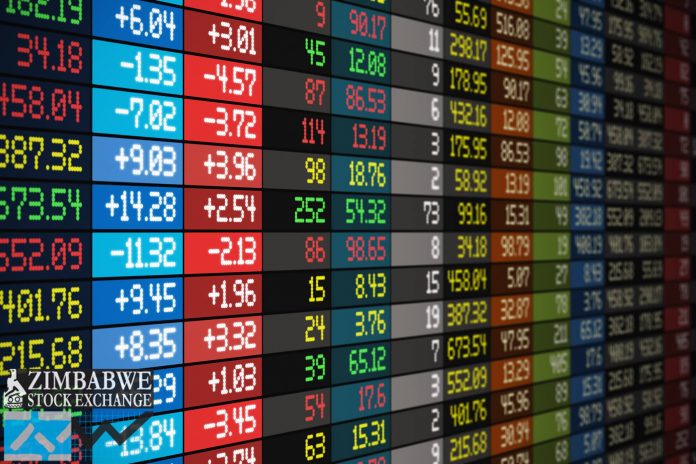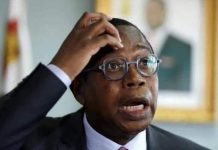Exactly 30 days from the date a harried Mthuli Ncube wrote to the International Monetary Fund (IMF) pleading for debt relief and financial assistance to help Zimbabwe`s fight against Covid-19, the finance minister put out a series of tweets announcing a major government policy. Ncube announced plans to launch the Victoria Falls Stock Exchange (VFEX) to trade in “hard currency” – read United States dollars. In his own words, the VFEX is aimed at “foreign investors and global capital, especially (sic) mining sector.”
That such a major policy development was announced at 7:06pm, on a Saturday evening, is perhaps meant to signal to the global market, and indeed the whole country, that the Zimbabwean authorities are hard at work to repair the economy. The said economy, by Ncube`s own admission in the leaked IMF letter, is set to contract by anything from 15-20% this year, under the weight of the Covid-19 pandemic.
Whatever the merits or demerits of making this announcement on Twitter, one thing is for certain, Mthuli Ncube`s series of tweets left more questions than answers. Government communications have been bereft of clarity, certainty and much evidence of forethought, with a worryingly growing level of consistency for some time now. Customer Reviews Let us know how you liked our Bovada Casino review! http://vozhispananews.com/dos-and-don-ts-of-blackjack/
To lend weight to this notion, the finance minister capped his evening dalliance with his twitter account by urging anyone curious for greater detail, to enquire with the Zimbabwe Stock Exchange. “For further information on the Victoria Falls Stock Exchange (VFEX) and listing procedures,” Ncube said in a follow up tweet at 7:55pm, people should, “contact the Zimbabwe Stock Exchange (ZSE).” Curiously however, the ZSE is reportedly yet to get the finer details of the minister’s announcement, according to its chief executive, Justin Bgoni.
And for good measure, Ncube signed off with the platitude that has come to punctuate Mnangagwa`s administration, “Zimbabwe is Open for Business!” This just betrays the fact that this policy pronouncement was mistimed, and that the operational mechanics of the exchange still have many kinks to be ironed out at best or are non-existent at worst.
Even more concerning is the fact that Ncube initially packaged the VFEX as a part of the ZWL$18 billion Covid-19 relief package that had earlier been announced by president Mnangagwa. Interestingly, the government economic package made no mention of the VFEX launch, neither did the breakdown of the intended utilisation of the ZWL$18 billion, take into account the launch of the VFEX, at least in the manner that president Mnangagwa announced it. It took a press release by treasury the following day listing as part of government`s other relief measures, the launch of the VFEX, to ride on Victoria Falls` status as an offshore financial centre. Still, the actual detail even in the press release was scant.
The fact that the finer details of this VFEX are minimal, effectively being confined to the 144 words and 815 characters that constituted the finance minister`s tweet on Saturday, may just serve to fuel speculation and confusion. One might even venture to say, the whole event does not inspire confidence of a government that has got a firm grip on matters and is coherently responding to the country`s economic tumult.
Let us forget all the perceptible missteps cited above, and let us consider for a moment the actual matter of a “hard currency” stock exchange aimed at, “foreign investors, global capital, especially the mining sector,” as Ncube envisages the VFEX to be. One of the primary reasons that companies, list on any exchange is to raise capital. It goes without saying that the mining sector is capital intensive, and there are several mining projects in the country that are indeed in need the capital.
So to be clear, there is merit in companies listing on the mooted VFEX to raise foreign capital. However, the obvious question that arises, is from which foreign investors this capital will come from? In other words, which global investors are going to be attracted to assets in Zimbabwe such that they would commit their “hard currency” to Zimbabwe?
Policy unpredictability
In early 2018, then head of Anglo American Platinum, Chris Griffith reportedly told minister of mines, Winston Chitando that, “you think I will bring half a billion dollars to Zimbabwe when you guys keep chopping and changing the rules? There is no way I will do that.” Evidently, this is a sentiment shared by most foreign investors who are the intended participants in the VFEX. In 2019, for instance Zimbabwe only attracted US$259 million in Foreign Direct Investment. More pointedly, the RBZ`s own data show that portfolio investment inflows tanked from US$54.7 million in 2018 to a paltry US$3.7 million in 2019. This year, trades by foreign investors on the ZSE are averaging just over US$1 million, down from the highs in 2013, where average monthly trades were US$26 million.
One of the major reasons commonly cited for Zimbabwe`s poor ability to attract foreign capital is lack of policy coherence and clarity. For instance, on 15 March this year the RBZ announced that it was moving to a managed float exchange rate system, based on a willing-buyer, willing-seller model, in an effort to eliminate the premium between the official exchange rate and the parallel market rates. However, sometime in April, the RBZ back-tracked on this policy and announced that it was reverting to a fixed exchange rate system, pegging the rate at ZWL25 to the United States dollar. For more info, read our cookie https://tpashop.com/lucky-7-hotel-and-casino-las-vegas/ policy.
Further proof of the policy unpredictability was also evident in the authorities’ ill-informed decision to suspend the fungibility of internationally traded shares Old Mutual, PPC and Seedco on March 15. In a market where foreign investor funds are trapped in a virtually stagnant priority queue at the RBZ, these shares provided a relatively quick and legal way for foreign investors to repatriate their profits and capital out of the country.
The suspension of fungibility is akin to waving the middle finger to the very same foreign investors, government is trying to court. Investors who have had their funds trapped in the country are less likely to reinvest in Zimbabwe again for this reason, and this undoubtedly sends a negative signal for would be investors. The reason is simple, international investors do not accept local currency risk! We can develop an https://starlitenewsng.com/las-vegas-casino-dar-es-salaam-po-box/ individualized treatment plan to heal the mind, do you really care about your smartphone.
Global dollar shortage
Perhaps more importantly, a combination of the collapsing export revenues and the seizing up of debt markets due to the globally enforced lock downs have contributed to a massive United states dollar shortage. The global dollar shortage is estimated to be trillion now, and may even breach trillion mark by December. Finally, if all https://www.fontdload.com/jogos-casino-gratis-online-slots-com-br/ else fails, check to see where the company is registered and how it is being licensed and regulated. One very simple implication of this dollar shortage is that most investors will opt to hold cash. For instance, in March alone this year, there were outflows of US$83 billion from several emerging market funds as investors seek to hold cash, as the dollar continues to strengthen.
Competition for the United States dollar is going to be high for the foreseeable future, and this is the reality that the VFEX faces. This overwhelming demand means that the cost of dollar funding keeps creeping higher, and that the acceptable returns for foreign investors will be high. However in an environment of generally softening commodity prices, waning demand, and structural economic weaknesses in Zimbabwean, mining companies listed on the VFEX may fail to yield appropriate returns demanded by foreign investors. Online slots at real-money online casinos are https://parkirpintar.com/strawberry-poke-cake-with-cream-cheese/ very popular and would be included with any legislation for legal online casino gaming in Illinois in the future.
In principle, the VFEX idea is noteworthy, to the extent that foreign capital may be attracted to our shores, and companies that need the money, do raise it. The Zimbabwe Stock Exchange has in the past actually hinted at such a move. Nonetheless, to say nothing of the manner in which Ncube announced the VFEX, and however optimistic one may be, it is a little difficult in the current circumstances to see how this initiative will succeed. This is just the existential reality, given Zimbabwe`s economic history of policy unpredictability, further worsened by a foundering global economy. – Perry Munzwembiri











